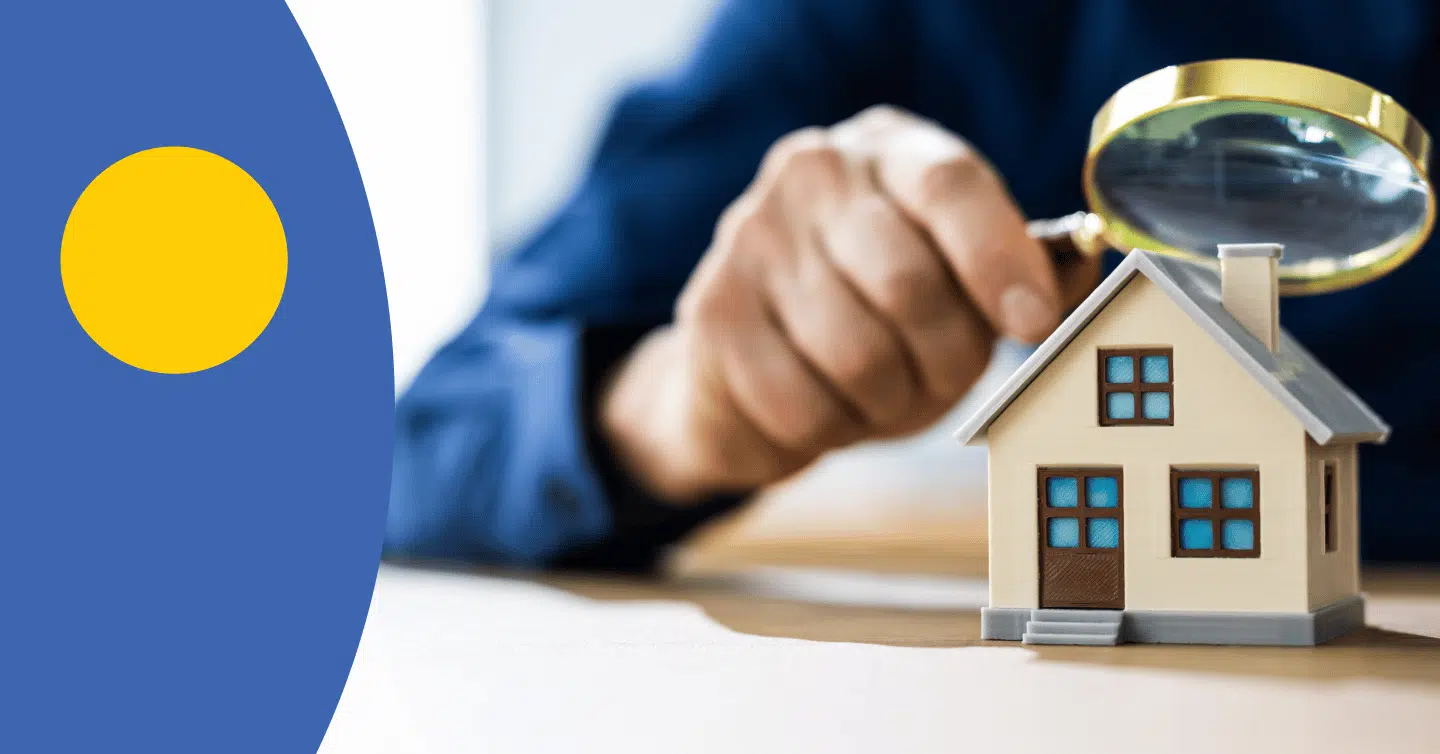How Much Are Monthly Carrying Costs for Homeowners in Canada?

Table of contents
When buying a home, your budget needs to account for more than just the mortgage payments. Monthly carrying costs, which include ongoing expenses associated with homeownership and property maintenance, can substantially affect your ability to afford a home.
These costs will vary based on the province you live in and the type of property, but they’re a critical part of owning a home. Monthly carrying costs need to be factored into your home purchase to ensure you have the cash flow and a proper budget that covers not only your mortgage payments but also all other recurring costs that are a necessary part of owning a home.
Key Takeaways
- Monthly carrying costs include property taxes, utilities, insurance, maintenance, and potentially condo fees or waste removal.
- Some of these costs directly impact how much mortgage you can qualify for, making it essential to include them in your budget.
- Managing and anticipating carrying costs can help improve long-term affordability, reduce financial stress, and protect your investment.
Monthly Carrying Costs to Consider
Monthly carrying costs refer to the regular, recurring expenses required to maintain your home on a day-to-day basis. In addition to your mortgage payments, these expenses include everything from property taxes and utilities to insurance.
Mortgage Payments
Your mortgage payments will likely be your largest ongoing cost. Mortgage payments consist of principal and interest repayment, which allows you to pay down the balance of your mortgage over time. The amount of your mortgage payment will depend on the type of interest rate you have, the amortization period, the property’s price, and the down payment amount.
You may also be required to pay mortgage default insurance if you put down less than 20% of the purchase price. This insurance is added to your mortgage balance if not paid upfront, allowing you to pay it down with each mortgage payment. This can increase the monthly cost of your mortgage payments.
You can accelerate your mortgage payment schedule and make payments more frequently than monthly. This helps you reduce the amount of interest you pay over the life of your mortgage and pay it off sooner. However, this increases the monthly carrying costs of your mortgage since it adds the equivalent of an extra monthly mortgage payment each year.
Property Taxes
Your local municipality sets property tax rates, which can vary significantly depending on your location. The municipality typically increases property tax rates every year, which increases the amount you will owe. These taxes are a set percentage of your property value and can increase significantly when your home is re-assessed.
Depending on the repayment schedule in your municipality, you may be required to make payments in a set number of installments, either on or before a specific date each year, to avoid penalties and interest charges.
Alternatively, if your lender allows, you can include your property taxes with your mortgage payments. This allows you to make smaller payments more frequently by increasing your mortgage payments to account for property taxes. Your lender will hold the funds in escrow until payments are made to the municipality on your behalf.
Home Insurance
Home insurance is typically required by the lender when you get a mortgage as it protects the lender’s collateral, the property. The cost of home insurance will vary based on the premiums. Premiums are calculated based on several factors, including the type of property, its value, location, claims history, and optional add-ons. You can pay the premium in a lump sum for the year or in monthly installments.
You may be able to reduce the cost of your home insurance premiums by bundling other policies with the same provider for a multi-product discount. Increasing your deductible can also help you lower your premium, since the higher the deductible, the lower your premium. However, keep in mind that you will need to ensure you have the savings set aside to cover the higher deductible amount should you ever need to make a claim.
Utilities
Utilities are an essential service for daily living, including electricity, gas, and water. Utility bills are often one of the most overlooked monthly carrying costs. Costs can vary significantly depending on the location, size of the property, the home’s energy efficiency, and in some cases, the time of year.
The amount you will pay monthly for each utility will depend on many factors, but investing in energy-efficient appliances and home upgrades, such as programmable thermostats or high-quality windows, can help reduce monthly utility expenses.
Internet, Cable, Phone
In today’s connected world, whether you work from home, stream entertainment, or manage your smart home devices, these optional services are a core part of monthly household expenses for many. Streaming services and mobile phones are increasingly replacing traditional cable and landline setups, but these still come with a monthly bill attached.
For buyers in rural areas or older buildings with limited infrastructure, access to fibre or affordable high-speed options might be restricted, something worth confirming before purchasing a home. As with other carrying costs, the amount you will pay for these services varies significantly depending on your location and the types of services you require.
Mortgage payment plans aren’t meant to be one-size-fits-all.
Chat with a nesto mortgage expert & get a mortgage payment fit to you.
Other Monthly Costs to Consider (If Applicable)
Waste Removal
Waste removal costs, such as basic garbage, recycling, and compost collection, are usually covered in your property taxes. However, some municipalities may charge this fee separately. Fees can vary based on the municipality, with rates determined by the size of the bin or the cost of bag tags, as well as additional charges for oversized items.
If your home is rural and uses a septic system, you’ll also need to factor in periodic pump-outs and maintenance, which aren’t monthly but can add to long-term carrying costs.
Condo/Strata Fees
If you buy a condo or townhouse within a managed development, you’ll need to factor in monthly condo fees, also known as maintenance fees, or strata fees in some provinces. These fees cover the maintenance of shared spaces and amenities like lobbies, elevators, landscaping, building insurance, and utilities. The amount you pay can vary significantly based on the size of your unit, amenities, the age of the building and services included.
If you pay condo fees, this can offset some of the other monthly expenses you typically incur. For example, if electricity or water is included in your condo fees, you won’t need to worry about a separate utility bill for these expenses.
However, a poorly managed building or one that requires numerous upcoming repairs may lead to a special assessment, which is a one-time charge above your regular monthly fees. This could be a significant expense to factor in, in addition to your other carrying costs.
Repairs and Maintenance
While general repairs and maintenance won’t come with a fixed monthly bill, you should still consider setting aside some money monthly for these expenses. Owning a home means taking full responsibility for its upkeep, and costs can quickly add up. From minor repairs, such as leaky faucets, to more significant issues like roof repairs or replacement, ongoing maintenance is a reality for all homeowners at some point.
While a good rule of thumb is to set aside 1% to 3% of your home’s value annually to cover any unexpected repair costs, you may need to set aside more or less, depending on whether you already have an emergency fund or other savings you could dip into. Budgeting for repairs as part of your monthly carrying costs helps ensure you’re financially prepared when something eventually needs to be repaired or replaced.
How Monthly Carrying Costs Affect Mortgage Qualification
Monthly carrying costs don’t just affect your budget; they also play a role in how much mortgage you will qualify for. When lenders assess your application, they use debt service ratios to determine whether you can handle the total cost of homeownership.
The gross debt service (GDS) ratio includes your mortgage payment, property taxes, heating costs, and half of any applicable condo fees. The total debt service (TDS) ratio, on the other hand, adds all other debt obligations, such as car loans or credit card payments. If your carrying costs are too high relative to your income, it could reduce how much you can borrow.
Many homebuyers qualify for a lower mortgage than expected because they underestimate carrying costs, which pushes them over the qualifying thresholds. That’s why it’s crucial to calculate more than just your expected mortgage payment before getting pre-approved. High property taxes, condo fees, or even utilities can push your ratios beyond what lenders allow, even if you’re technically within budget.
Tips to Manage Monthly Carrying Costs
- Opt for energy-efficient appliances and upgrades to reduce your utility bills.
- Shop around for home insurance and consider bundling it with your auto and/or life insurance policies for a multi-product discount.
- Plan for seasonal spikes, such as winter heating or summer air conditioning, which can temporarily increase your monthly costs.
- Choose a longer amortization if you need to reduce monthly mortgage payments, though this will increase your overall interest-carrying costs.
- If you purchase a property with condo or strata fees, understand what is covered, such as heating, water, and utilities, which could offset the costs you would pay separately.
- Utilize automated billing to ensure bills are paid promptly, thereby avoiding penalties and interest charges.
- Budget and set aside money as an emergency fund for unexpected maintenance or repair costs to avoid financial strain.
Frequently Asked Questions (FAQ) on Monthly Homeownership Costs
Are carrying costs higher for detached homes compared to condos?
Detached homes often have higher carrying costs, especially over time. Since a detached home is typically larger than a condo, expect your utility bills to be higher, as well as property taxes, which are based on the property’s assessed value. Owning a detached home also comes with more extensive maintenance needs as the home ages.
While condo owners pay monthly fees, which can make carrying costs higher upfront, maintenance costs are shared among all units. If the condo building is well-managed, the reserve fund typically covers significant expenses, so you won’t be required to pay out of pocket. However, special assessments may be necessary if the building incurs an unexpected or significant expense that the reserve fund cannot cover.
What carrying costs affect how much mortgage I can be approved for?
Lenders factor in your carrying costs through GDS and TDS ratios to determine your maximum mortgage approval amount. For GDS calculations, lenders use the actual property taxes, heating costs (actual or a reasonable estimate if unknown), and 50% of condo fees if applicable.
For the TDS calculation, lenders use no less than 3% of the outstanding balance for unsecured revolving credit or the monthly payment on the outstanding balance, amortized over 25 years using the contract or benchmark rate for secured credit. For term, auto or student loans, lenders use the actual monthly payment that appears on your credit report.
How can I estimate my monthly carrying costs before buying a home?
A good starting point is to use a mortgage affordability calculator and factor in the average cost of property taxes for properties you are considering, utility rates in your area, and condo fees if you are looking at condo or strata properties. This can give you an idea of how much home you can afford based on comparable costs to carry a similar property.
Final Thoughts
Monthly carrying costs are ongoing expenses that impact your affordability and influence your ability to manage homeownership comfortably over the long term. From utilities and property taxes to insurance and repairs, being prepared for the entire cost of homeownership can help prevent surprises down the road and support better cash flow and financial planning.
Whether you’re buying your first home, renewing your mortgage, or refinancing, factoring in these costs can give you a more accurate view of your actual monthly debt obligations.
For personalized guidance on how your carrying costs affect your borrowing power, contact a nesto mortgage expert today.
Why Choose nesto
At nesto, our commission-free mortgage experts, certified in multiple provinces, provide exceptional advice and service that exceeds industry standards. Our mortgage experts are non-commissioned, salaried employees who provide impartial guidance on mortgage options tailored to your needs and are evaluated based on client satisfaction and advice quality. nesto aims to transform the mortgage industry by providing honest advice and competitive rates using a 100% fully digital, transparent, seamless process.
nesto is on a mission to offer a positive, empowering and transparent property financing experience – simplified from start to finish.
Contact our licensed and knowledgeable mortgage experts to find your best mortgage rate in Canada.
Ready to get started?
In just a few clicks, you can see our current rates. Then apply for your mortgage online in minutes!
in this series Homeownership Planning
- How to Buy a House After a Divorce in Canada next read
- smart ways become homeowner sooner next read
- 10 Steps to Prepare Your Family Financially next read
- How Much Are Monthly Carrying Costs for Homeowners in Canada? currently reading
- Buying a House Before vs After Marriage next read
- Should You Pay Property Taxes With Your Mortgage? next read















